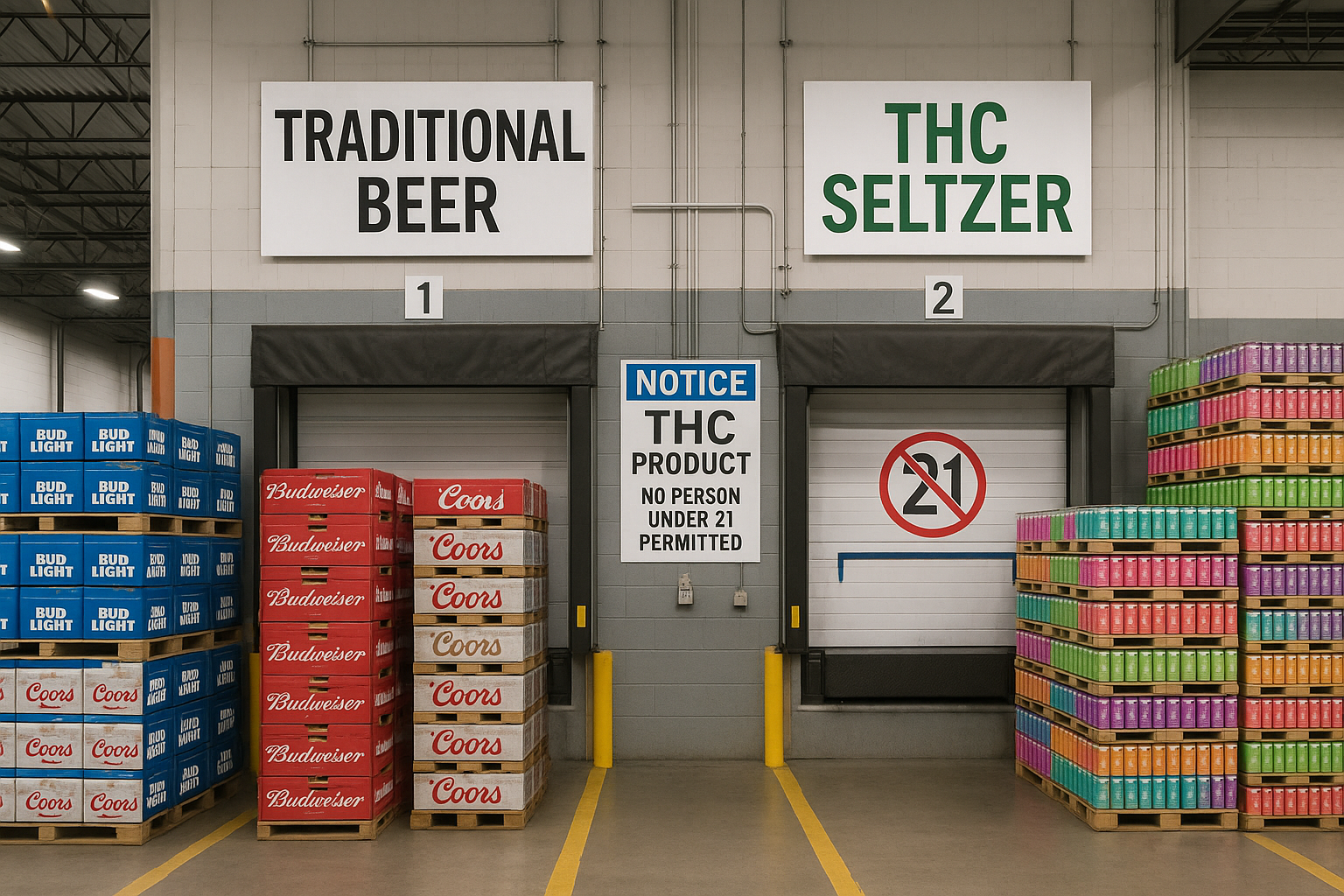
The rapid expansion of hemp-derived THC seltzers into American retail channels has brought about a new era in beverage distribution. As we enter the close of 2025, even the most traditional beer distributors are making portfolio moves: partnering with cannabinoid brands and offering THC seltzers alongside classic brews. However, these market shifts have set off alarms in the compliance and antitrust arenas, especially as the three-tier system—once exclusive to alcohol—now finds itself tested by the influx of non-alcoholic intoxicants.
The Alcohol and Tobacco Tax and Trade Bureau (TTB) has made it unwaveringly clear: no hemp-derived THC may be produced, stored, or handled on federally bonded premises. According to the TTB's 2025 guidance, breweries, distilleries, and other alcohol-licensed producers must maintain physical—and often operational—separation when handling cannabinoid-infused beverages. This is crucial for any alcohol-licensed entity distributing or warehousing THC seltzers. Federal agencies, including the FDA and state ABCs, are collaborating to clarify and tighten these boundaries, as hemp-derived intoxicants remain federally legal but heavily regulated at the state level.
Key Takeaway: If your facility is federally bonded for alcohol, keep all hemp-THC products off-site. Alternating premises arrangements must be carefully structured to avoid regulatory violations.
Many states in 2025 have opted to classify hemp-derived THC beverages as food or general consumer products—not as alcoholic beverages. This regulatory carve-out allows for THC seltzers to enter grocery stores, bars, and even liquor stores, expanding access well beyond traditional cannabis dispensaries.
With this access comes complexity. Some states have required THC beverage distribution to go through existing beer and wine distributors, effectively extending the three-tier framework to a new product class. Others have created specific licensing tracks or allowed more open, direct distribution models. This patchwork demands close attention from compliance teams as rules are updated on a near-monthly basis.
Regulatory application and compliance windows vary by state. Many new product registrations and retail licensing obligations for 2025 have deadlines in Q1 and Q2, with rolling updates as states refine food safety and labeling criteria for intoxicating cannabinoids.
As alcohol distributors sign exclusivity or preferred-portfolio deals with cannabinoid brands, several antitrust and franchise law concerns come to the forefront. The core risks stem from practices such as:
Case Example: In 2025, several state attorneys general opened investigations into whether distributor-led THC seltzer placement agreements resulted in unfair competition, leading to heightened compliance audits across the sector.
Three prominent legal frameworks shape the do’s and don’ts for THC seltzer distribution:
Many states have statutes protecting beverage brands and distributors from coercive contract terms. These often prohibit mandatory exclusivity or heavy-handed control over marketing. Agreements should offer:
Tied‑house laws prohibit alcohol suppliers or distributors from giving items of value to retailers, or from controlling retail business decisions (spacing, pricing, promotion). While not all states apply these statutes to non-alcoholic THC products, many are beginning to do so, especially as consumer intoxication levels and responsible service become compliance flashpoints.
Enforced by the Federal Trade Commission, this act outlaws discriminatory pricing and promotional practices. In 2025, regulators are actively probing whether THC beverage producers or distributors are:
To minimize risk, THC seltzer brands and distributors should consider contract language like:
No required exclusivity: "Distributor is free to carry other cannabinoid beverage brands, and Supplier reserves the right to appoint additional distributors within the same territory."
No territorial foreclosure: "Nothing herein shall prevent Distributor or Retailer from sourcing, displaying, or promoting competing cannabinoid beverage products."
Equal pricing and promotions: "Supplier agrees to offer price promotions and marketing support on an equal basis to all similarly situated accounts, in compliance with federal and state antitrust laws."
Inducements prohibition: "Distributor/Supplier shall not offer, and Retailer shall not accept, any items of value or compensation conditioned on product placement, shelf space, or marketing support beyond standard promotional programs open to all accounts."
Separation of operations: "Parties agree not to co-mingle hemp-THC products with alcoholic beverage inventory or handle such products within federally bonded premises."
Even with state-level permission, TTB oversight means licensed alcohol premises—like breweries or wholesale warehouses—must maintain a clear, documented physical and operational divide between alcohol and hemp-THC products. This is critical for any entity holding a federal bond or permit. Avoid using bonded production lines, storage tanks, or delivery vehicles for any intoxicating cannabis product.
Federal penalties for TTB or FDA violations can include administrative actions, fines exceeding six figures, loss of permit, and/or referral for criminal prosecution. State regulators may impose license suspensions, mandatory product withdrawals, and significant financial penalties for violating franchise, tied-house, or inducement provisions.
For example, in Q3 2025:
As 2025 comes to a close, the regulatory spotlight on THC seltzer distribution antitrust 2025 issues will only intensify. Both state and federal agencies are signaling a more active enforcement posture for any arrangement that looks like market foreclosure, tied-house collusion, or consumer harm in this rapidly evolving category.
If your business is jumping into the exciting, but risky, THC beverage space, leverage technology and up-to-the-minute guidance from CannabisRegulations.ai to ensure your compliance, licensing, and operational playbooks are ready for what’s next.